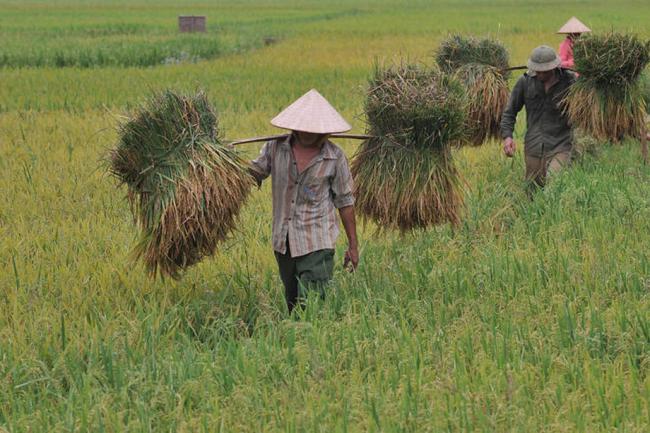
Climate change threatens agricultural trade in Pacific Rim economies, UN agency warns
“Many APEC [Asia-Pacific Economic Cooperation] economies have already felt the full force of agricultural losses from natural disasters in recent years, with the vast majority of these being climate related,” said Kundhavi Kadiresan, Assistant Director-General and FAO Regional Representative for Asia and the Pacific.
Geographically, the negative impact of climate change on agricultural output could result in lower yields of rice, wheat, corn and soybeans in countries with tropical climates, compared with the impacts experienced by those in higher latitudes. Fisheries could also be affected by changes to water temperature, warned the Food and Agriculture Organization (FAO) on Friday.
“The annual tally runs into the billions and billions of dollars in losses. So, the time to act is now. Policy makers need to prepare for changes in supply, shifting trade patterns and a need for greater investment in agriculture, fisheries, land and water management, that will benefit smallholder farmers and others that produce our food,” Kadiresan added.
It is imperative that we start thinking now about the hard decisions and actions that the [Asia Pacific] economies, and others, will need to take FAO Regional Representative Kundhavi Kadiresan
Many vital agricultural regions in Asia are at risk of crossing key climate thresholds that would cause plant and animal productivity to decline, according to a meeting in Viet Nam of Agriculture Ministers of APEC member economies.
Based on the findings of the global research community, the International Panel on Climate Change (IPCC) anticipates that these trends are expected to worsen in the future with the projected impacts of anthropogenic climate change.
A changing environment
The agriculture sectors account for at least one-fifth of total emissions, mainly from forest to farmland conversions; livestock and paddy production; and application of synthetic fertilizers. Estimates show that 70 per cent of the technical potential to reduce agriculture emissions occurs in tropical developing countries, which characterize much of Asia.
“It is imperative that we start thinking now about the hard decisions and actions that the APEC economies, and others, will need to take. Governments will need to consider greater social protection measures. Industry and trade will need to adapt to shifting supply and demand. There is no quick fix but there is every reason to act,” Kadiresan stressed.
FAO has been working with the Ministry of Agriculture and Rural Development in Viet Nam to assess potential emission reductions the System of Rice Intensification and improved livestock management.
In Cambodia, Papua New Guinea and Mongolia, FAO, has partnered in developing programmes to measure, monitor and report emissions and adaptation actions in the agriculture and land-use sectors.
In the forestry sector, avoiding deforestation, increasing the area under forest, and adopting sustainable forest management will create invaluable carbon sinks. FAO has been supporting national programmes for reduced emissions from deforestation and forest degradation.
The meeting made clear that more upfront support is essential to increase farmers' productivity, build capacity to adapt to climate change and reduce the emissions related to production.
A second area requiring financing is also needed to support capacity-building of appropriate institutions and policies. Climate funds could become an important catalyst for climate change adaptation and mitigation if they are used to build the enabling environment essential for climate-smart agricultural development, while ensuring that public agricultural investment is also climate-smart, and to leverage private finance.
Photo: FAO/Hoang Dinh Nam
Source: www.justearthnews.com
Support Our Journalism
We cannot do without you.. your contribution supports unbiased journalism
IBNS is not driven by any ism- not wokeism, not racism, not skewed secularism, not hyper right-wing or left liberal ideals, nor by any hardline religious beliefs or hyper nationalism. We want to serve you good old objective news, as they are. We do not judge or preach. We let people decide for themselves. We only try to present factual and well-sourced news.







